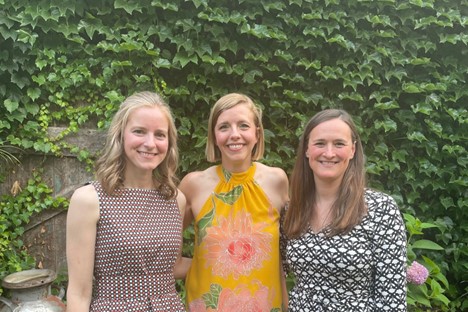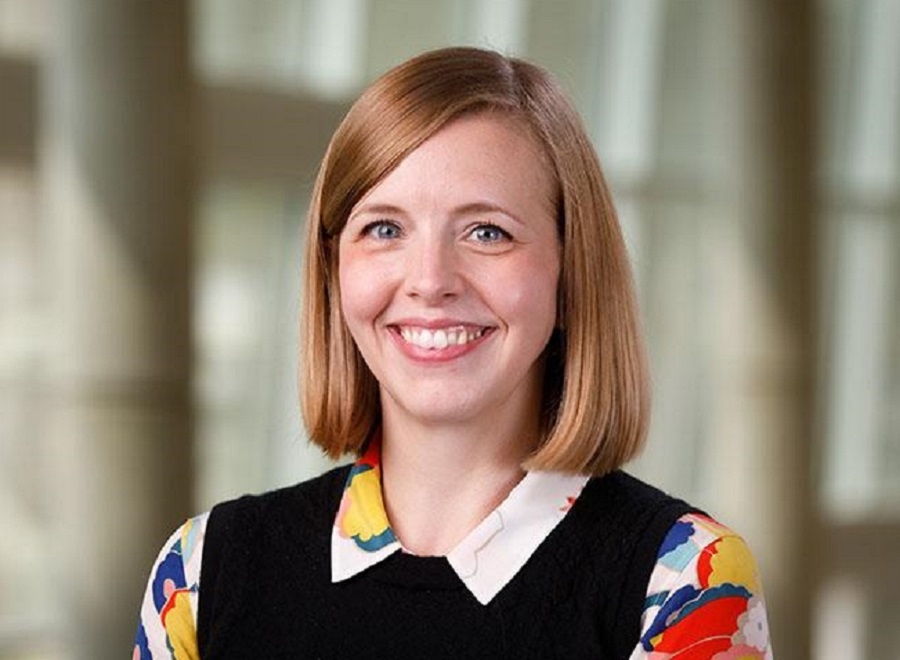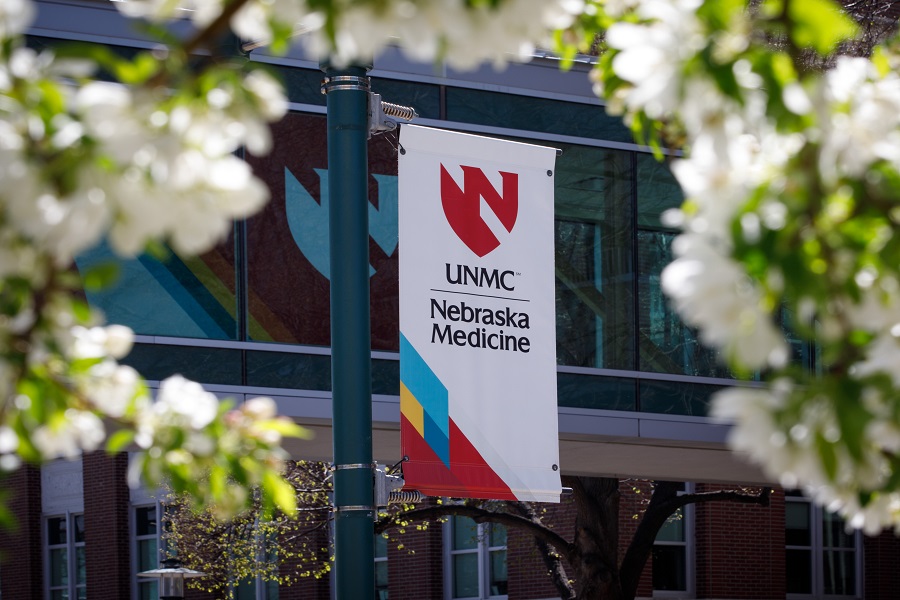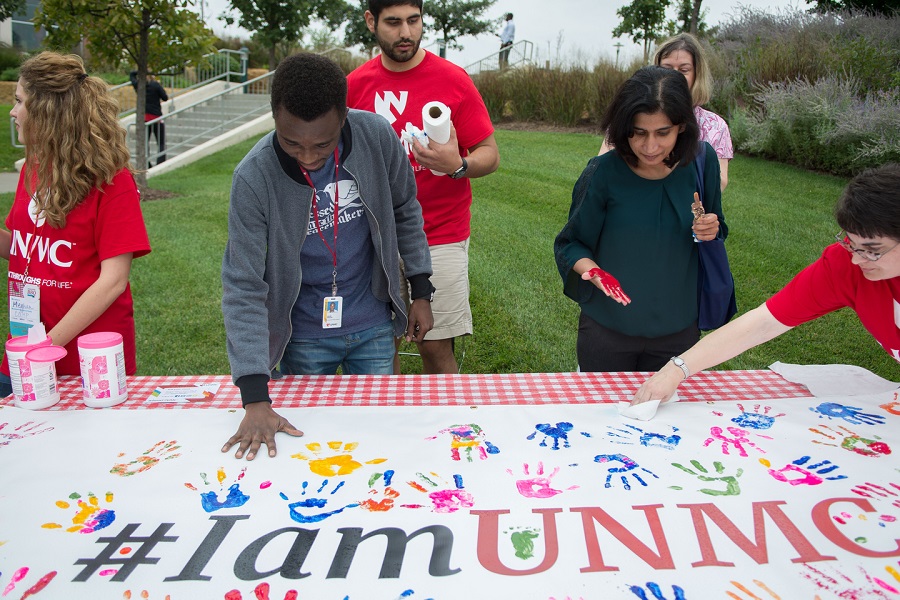Hospice and Palliative Medicine Fellowship
The state of Nebraska currently has limited access to specialty level palliative care services. The UNMC fellowship in hospice and palliative medicine initially aims to improve access to and quality of palliative care services in the state of Nebraska and surrounding region through training of physicians to expand the palliative care workforce at a specialty level. Graduates will additionally improve palliative care services indirectly through teaching primary palliative care skills to colleagues and medical learners as well as through leadership roles in their future work environments. While initial aims focus on the development of graduates to become expert clinicians, clinician educators, and leaders within their health systems, future aims for the program as it matures will include further focus on research and public health initiatives.
The mission of the UNMC fellowship in hospice and palliative medicine is to train physicians to become:
- Expert clinicians in team-based, whole person symptom management.
- Expert communicators and educators in supporting patients, families, and colleagues.
- Leaders within health systems at a local, regional, and national level with regards to navigating the complex course of serious illness.
At the end of the fellowship, graduates will be eligible for board certification in Hospice and Palliative Medicine and can pursue careers focused on providing Palliative Care to either pediatric or adult patients in inpatient and outpatient settings in either academic or community practice.

2023 Fellowship Graduation (Left to right) Dr. Ariana Bauer (graduate), Dr. Melissa Teply (program director), and Dr. Lindsay Gage (graduate)
Program Information
Applications are accepted through the Electronic Residency Application System (ERAS). Applications, deadlines, and regulations are available in full detail through the ERAS website and the NRMP website. Applicants with J1 and H1B visas may apply.
ACGME Program: 5403012002
NRMP ID: 1376540F0 (includes Pediatric Focused Track)
Number of Fellow Positions: 3
2023 Interview Season
The program will be conducting virtual interviews utilizing the web-based conferencing system Zoom. Applicants selected to interview will be contacted by the program coordinator, Travis Weyant, to confirm dates and itinerary details. Interviews will run 3 to 3 1/2 hrs. The program can accommodate morning or afternoon interview times depending on the needs of the applicant.
If you have additional questions please contact the program coordinator, Travis Weyant.
Email: tweyant@unmc.edu
Phone:402-559-3965
The core didactics consist of roughly 30 topics ranging from current issues in palliative and end of life care, pain and non-pain symptom management, to ethics, and care systems. The program also has a growing series of lectures focused on the cross section between palliative medicine and other subspecialties such as; oncology, nephrology, and cardiology.
Fellows also have an opportunity to participate in our divisions lecture series on medical direction and quality improvement. Fellows are required to attend weekly core didactics and/or case/board review sessions, quarterly journal club, and quarterly research conferences. Fellows who are interested in research will have the opportunity to attend the annual UNMC clinical research symposium.
Fellows receive support to attend Pallitalk, an intensive communication skills seminar for hospice and palliative medicine fellows hosted at the University of Wisconsin-Madison. Additionally, the fellows have the opportunity to attend the Annual Assembly for American Academy of Hospice and Palliative Medicine.
The core clinical rotations include; Outpatient Palliative Medicine, Community Hospice Care, and Inpatient Palliative Consultations (adult and pediatric).
The fellows will also have meaningful clinical experiences with other specialties including; Post-Acute and Long-Term Nursing Home Care, Pain Medicine, Oncology, and Wound Care.
Inpatient Palliative Care Consults (8 months)
- Rotation site: Omaha Veteran Administration Hospital & Nebraska Medicine
- Rotation experience: Fellows will see patients admitted to the VA with palliative care consults. The fellow will staff directly with the palliative medicine attending. Skills learned over the rotation will include:
- Working as a consultant
- Comprehensive symptom assessment and management
- Assessment and management of issues around capacity for medical decision making
- Helping patients and families develop prognostic awareness
- Eliciting the values and preferences of patients and families
- Making recommendations based on patient preferences
- Discussing advance care planning and recommending completion of forms such as advance directives and POLST as applicable
- Discussing and recommending a transition to hospice when applicable
- With progressive responsibility, teaching residents and medical students
Home Hospice (2.5 months)
- Rotation site: Hillcrest Home Hospice
- Rotation experience: Fellows will perform home visits with various members of the hospice team and attend weekly IDT meetings. Fellows will work in an observational role, and over time, will start to make the plan of care for patients and field calls about patient care during normal business hours. Skills learned over the rotation will include:
- Working with an interdisciplinary team
- Comprehensive symptom assessment and management
- Assessment and management of issues around capacity for medical decision making
- Hospice qualifications for initial admission and subsequent recertification
- Regulatory issues around hospice compliance and payment structure
Pediatric Palliative Care Inpatient Consults (1 month)
Note: A significant amount of inpatient months will be dedicated to this rotation site for pediatric focused fellows.
- Rotation site: Children’s Hospital and Medical Center “Hand in Hand” Team
- Rotation experience: Fellows will largely serve in an observational role to better understand the similarities and differences between palliative medicine in the adult and pediatric patient populations. Learning goals over this rotation are largely related to perspectives around:
- Family systems with coping with serious illness
- Family systems with medical decision making
- Explaining death to a child at various ages
- The varying scope of practice of palliative medicine in the pediatric patient population
- Special considerations around the hospice benefit in the pediatric patient population
Long Term Care Experience
- Rotation site: St. Joseph Villa Nursing Home & Gretna Community Living
- Rotation experience: Fellows will have a panel of patients that they follow longitudinally. Fellows will staff directly with the attending. Skills learned over this longitudinal experience will include:
- Working with an interdisciplinary team to provide patient care
- Assessment and management of issues around capacity for medical decision making
- Working with families to provide support, elicit values and preferences, and make personalized recommendations on patient care
- Discussing advance care planning and recommending completion of forms such as advance directives and POLST as applicable
- Assessing and adjusting goals of care over a longitudinal time period (eg decisions about going back to the hospital, when to transition to hospice)
Ambulatory Palliative Care Experience
- Rotation site: Fred and Pamela Buffett Cancer Center Clinic at UNMC
- Rotation experience: Fellows will have progressive responsibility in this experience, from observation to direct patient care with the goal of following patients longitudinally in the ambulatory setting. Fellows will staff directly with the attending. Skills learned over this longitudinal experience will include:
- Working with referring providers in a co-management role
- Comprehensive symptom assessment and management
- Eliciting preferences around prognostic disclosure
- Helping patients and families develop prognostic awareness
- Providing support and coping strategies for patients and families
- Eliciting the values and preferences of patients and families
- Making recommendations based on patient preferences
- Discussing advance care planning and recommending completion of forms such as advance directives and POLST as applicable
- Discussing and recommending a transition to hospice when applicable
Acute and Chronic Pain (1 week)
- Rotation site: Nebraska Medicine Oncology (Inpatient & Outpatient)
- Rotation experience: Fellows will work with the acute pain team in the inpatient setting and also see patients in the ambulatory setting. The experience may start with observation with the expectation of seeing patients directly and staffing with the attending. Skills learned over this rotation will include:
- Comprehensive pain assessment
- Understanding various modalities for managing pain, including medications, procedures, and referral to other services as applicable (eg. physical therapy, substance use disorders clinic, psychiatry, psychology)
- Criteria and eligibility for procedural pain management strategies, particularly intrathecal pain pumps
Oncology Inpatient Consults (2 weeks)
- Rotation site: UNMC
- Rotation experience: This rotation serves as a capstone clinical experience at the end of the fellowship year, as fellows will be nearly ready for independent palliative medicine practice. Fellows will work with the oncology consult team in the inpatient setting to see patients admitted with advanced cancers. Fellows will staff directly with the oncology attending with Dr. Melissa Teply available for indirect supervision. Skills learned over the rotation will include:
- Serving as an embedded palliative medicine specialist on the oncology consult team
- Coordination of communication between the inpatient and outpatient oncology providers and settings
- Comprehensive symptom assessment and management
- Helping patients and families develop prognostic awareness
- Eliciting the values and preferences of patients and families
- Making recommendations based on patient preferences
- Discussing advance care planning and recommending completion of forms such as advance directives and POLST as applicable
- Discussing and recommending a transition to hospice when applicable
Elective (1 month)
This experience will be scheduled toward the end of the fellowship year in order to allow fellows time to create a personalized learning experience. Elective opportunities are available in ethics, geriatrics, oncology, expanded time in any of the required rotations, or other learning experiences that the fellow identifies.
Learn More About
Melissa L. Teply , MD
Hospice and Palliative Medicine Fellowship Program Director
402-559-3877

Division supports hospice and palliative care training
Melissa Teply, MD, knows many practitioners go into health care wanting to keep people healthy and to save lives. But death and dying, Dr. Teply said, are realities that young physicians soon face. The division of geriatrics, gerontology and palliative medicine offers a fellowship to help.



